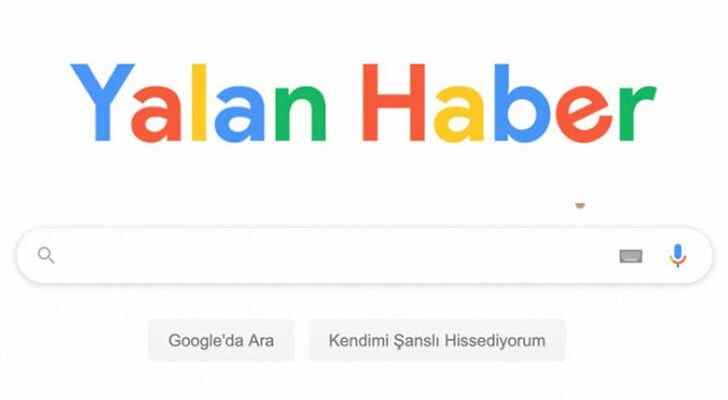Google is the place where we come across fake news and misleading information on the internet the most. According to the results of a new study on the platform, the country with the most false and false information in Google results was Turkey with 90%.
ProPublica, the first internet news organization to win the most prestigious award in journalism, Plutzer, scrutinized Google for the spread of misinformation. According to the results that may not come as a surprise to internet users in Turkey, Google “to turn spreading misinformation into a profitable business” contributes.
According to the results of the research summarized by the news and information verification platform Teyit.org, the situation in Turkey is more dire.
Turkey was the country with the highest rate of ‘publisher earning money from Google ads while giving false information’: So what does this mean?
Ads personalized by Google are among the main sources of income for most websites. Google ads, which you can see on the page you are reading this line, also have a huge macroeconomic effect that provides the money flow in the world internet ecosystem. According to the research of ProPublica, those who publish non-English proportion of Google ads on sites that spread misinformation It ranges from 30% to 90%.
According to the data of Teyit.org, which was also included in ProPublica’s research, 45 of the 50 websites in Turkey that were found to spread false information include Google ads. This means Turkey with a rate of 90%, the summit on the spread of misinformation on the Internet carrying. After Turkey, Croatia, Serbia and Bosnia and Herzegovina are on the list with 87%; Brazil with 80%, Spain with 44%, Latin America with 38% and German-speaking countries with 30%.
Disinformation makes money in Turkey: Google does not take action despite the current picture and all calls…

According to Datareportal’s research and Teyit.org’s statement, Turkish ranks fourth among the languages in which the most content is produced on the Internet. Despite this, no concrete steps are seen from Google to reduce the spread of fake news and false information.
Emre Kızılkaya, vice president of the Vienna-based International Press Institute and investigative journalist, told Teyit that disinformation makes money and propaganda works in Turkey.
Editor’s note: Does the Social Media Law provide a solution to this?
Although “Will something happen to me?” by users. Social Media Law -as it stands on paper- even though individual inferences are made and it is criticized as “legally ambiguous”; on the internet ensuring the dissemination of accurate information has the purpose. This law, in which people and websites that consider themselves obliged to inform, are recognized as a media organization for the first time, can also be seen as a precaution against possible false news of these people and organizations.
As a matter of fact, there are question marks regarding the implementation phase of the law, because the issue of “which information will be qualified as true or false according to whom and according to what” cannot be defined clearly. However, the law is directed against the person, institution and platforms that allow the dissemination of this information. ad blocking and bandwidth throttling includes sanctions. However, the fact that misinformation publishers who make money with Google ads reach an astronomical rate of 90% in Turkey shows that a possible ad blocking or bandwidth throttling penalty will seriously harm the internet economy in Turkey. In short, the decision makers in our country are faced with an economy of misinformation that has permeated a whole industry.
Finally, let us state that 193 billion TL of Google’s 476 billion TL contribution to the Turkish economy in 2021 was provided by advertising tools.
